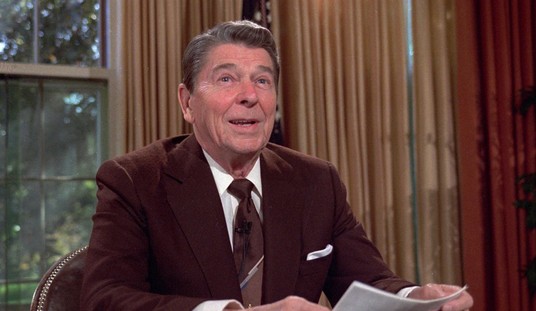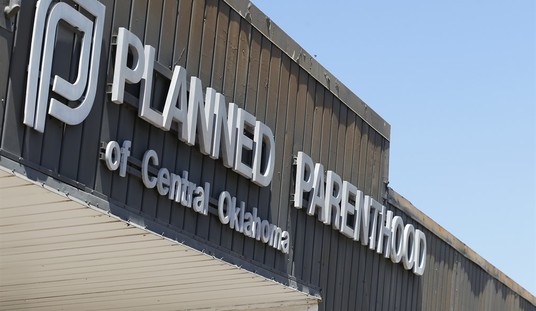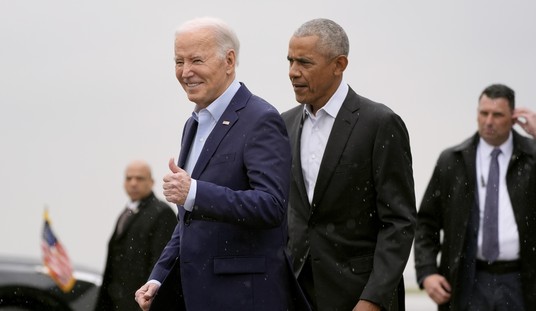Just for fun…
President Obama’s supporters claim their man is a great speechmaker. That may be a matter of opinion, but there are a lot of political experts on both sides who think a lot of the president’s oratorical abilities.
Rhetorically, his speeches are very good — well crafted with nice phrasing and organization. It may be that we’ve grown tired of his speechifying over the years, but his set-piece addresses lately have not achieved the level that some of his speeches from his first campaign, and first couple of years in office, reached.
Case in point; the president’s address at Normandy today commemorating the 70th anniversary of the landings.
The speech reads well, but was delivered in a subdued, almost listless manner. C-Span coverage: (speech begins at 51 minutes into the video):
ABC News with some exerpts:
“These men waged war so that we might know peace. They sacrificed so that we might be free. They fought in hopes of a day when we’d no longer need to fight. We are grateful to them,” President Obama said to sustained applause at the Normandy American Cemetery.
“It was here, on these shores, that the tide was turned in that common struggle for freedom,” Obama said. “What more powerful manifestation of America’s commitment to human freedom than the sight of wave after wave of young men boarding those boats to liberate people they’d never met?”
With World War II veterans seated behind him, the president described the tense scenes of the day when over 150,000 allied troops invaded the shores of Normandy 70 years ago.
“If prayer were made of sound, the skies over England that night would have deafened the world,” the president said. “Captains paced their decks. Pilots tapped their gauges. Commanders pored over maps, fully aware that for all the months of meticulous planning, everything could go wrong: the winds, the tides, the element of surprise – and above all, the audacious bet that what waited on the other side of the Channel would compel men not to shrink away, but to charge ahead.”
“Fresh-faced GIs rubbed trinkets, kissed pictures of sweethearts, checked and re-checked their equipment. ‘God,’ asked one, ‘Give me guts.’ And in the pre-dawn hours, planes rumbled down runways; gliders and paratroopers slipped through the sky; giant screws began to turn on an armada that looked like more ships than sea. And more than 150,000 souls set off towards this tiny sliver of sand upon which hung more than the fate of a war, but the course of human history,” he said.
Obama supporters are so enamored of their hero’s speaking ability, they proudly compare him to Ronald Reagan.
Really? Let’s take a look at that comparison on the next page.
Here’s Reagan 30 years ago at the 40th anniversary of D-Day delivering what many historians consider to be one of the greatest speeches of the 20th century:
Sitting in front of President Reagan were the survivors of D-Day’s most perilous operation — the taking of the bluffs above Point du Hoc:
We stand on a lonely, windswept point on the northern shore of France. The air is soft, but forty years ago at this moment, the air was dense with smoke and the cries of men, and the air was filled with the crack of rifle fire and the roar of cannon. At dawn, on the morning of the 6th of June, 1944, two hundred and twenty-five Rangers jumped off the British landing craft and ran to the bottom of these cliffs.
Their mission was one of the most difficult and daring of the invasion: to climb these sheer and desolate cliffs and take out the enemy guns. The Allies had been told that some of the mightiest of these guns were here, and they would be trained on the beaches to stop the Allied advance.
The Rangers looked up and saw the enemy soldiers at the edge of the cliffs, shooting down at them with machine guns and throwing grenades. And the American Rangers began to climb. They shot rope ladders over the face of these cliffs and began to pull themselves up. When one Ranger fell, another would take his place. When one rope was cut, a Ranger would grab another and begin his climb again. They climbed, shot back, and held their footing. Soon, one by one, the Rangers pulled themselves over the top, and in seizing the firm land at the top of these cliffs, they began to seize back the continent of Europe. Two hundred and twenty-five came here. After two days of fighting, only ninety could still bear arms.
And behind me is a memorial that symbolizes the Ranger daggers that were thrust into the top of these cliffs. And before me are the men who put them there. These are the boys of Pointe du Hoc. These are the men who took the cliffs. These are the champions who helped free a continent. And these are the heroes who helped end a war. Gentlemen, I look at you and I think of the words of Stephen Spender’s poem. You are men who in your “lives fought for life and left the vivid air signed with your honor.”
Can you imagine President Obama uttering these words?
The men of Normandy had faith that what they were doing was right, faith that they fought for all humanity, faith that a just God would grant them mercy on this beachhead, or on the next. It was the deep knowledge — and pray God we have not lost it — that there is a profound moral difference between the use of force for liberation and the use of force for conquest. You were here to liberate, not to conquer, and so you and those others did not doubt your cause. And you were right not to doubt.
You all knew that some things are worth dying for. One’s country is worth dying for, and democracy is worth dying for, because it’s the most deeply honorable form of government ever devised by man. All of you loved liberty. All of you were willing to fight tyranny, and you knew the people of your countries were behind you.
Men like Reagan with the moral clarity to see these basic human truths are sorely missing these days. Pretentious claims of equality aside, not only was Reagan a better speaker than President Obama, he was a better man.
More from Andrew Klavan:










Join the conversation as a VIP Member